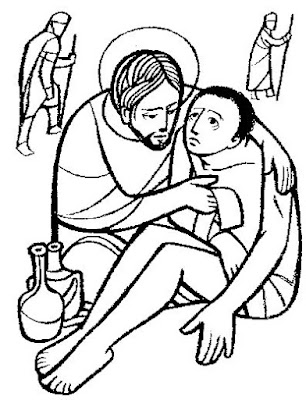XVIII SUNDAY IN ORDINARY TIME - Luke 12:13-21
In this Sunday’s gospel, we hear the parable about the rich man who illustrates the foolishness of setting our hearts to the enjoyment of wealth. This parable and the words introducing it present an indictment on avarice. Jesus gives a dire warning, saying: “Watch, and be on your guard against avarice of any kind, for a man’s life is not made secure by what he owns, even when he has more than he needs.”
The rich man had a huge harvest, much bigger than he expected. He kept it all for himself. In his heart, there was no place for anybody else. He could have shared with those who laboured on his field and had contributed to the good harvest. He could have thought of the poor and the needy to relieve their suffering. He could even have thought of investing, thus creating jobs for those who have no work. He was self-centred and chose a lifestyle of emptiness: “My soul, you have plenty of good things laid by for many years to come; take things easy, eat, drink, have a good time.” The “good time” did not bring peace to his heart.
The first reading, taken from the book of Qoheleth (Ecclesiastes), calls that attitude a pursuit of vanity:
“For so it is that a man who has laboured wisely, skilfully and successfully must leave what is his own to someone who has not toiled for it at all. This, too, is vanity and great injustice; for what does he gain for all the toil and strain that he has undergone under the sun? What of all his laborious days, his cares of office, his restless nights? This, too, is vanity.” (Qoh 2:21-23).
The world we live in has set its heart to the pursuit of wealth, looking for ever bigger profits. However, many times, those big profits are concentrated in the hands of a few, leaving the poor in extreme situations of poverty.
Some people preach a gospel of wealth, proclaiming prosperity as a sign of blessings. Jesus himself does not want to get involved in those questions. He said clearly: “My friend, who appointed me your judge, or the arbitrator of your claims?” Our claims about prosperity and wealth cannot be based on Jesus’ preaching and on his way of life. It is foolishness to concentrate our hearts and minds on wealth. The important thing is to make oneself “rich in the sight of God”.


